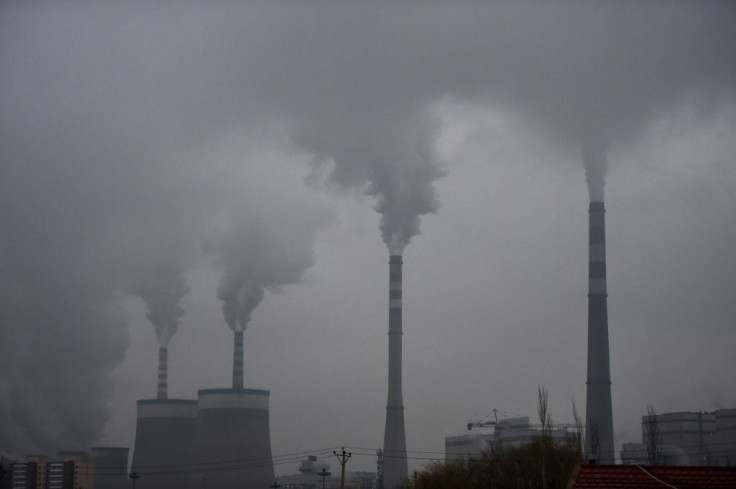Will Business Go Along With Biden’s Environmental Plan? $2T Proposal Won’t Cover Total Cost

KEY POINTS
- Biden would use his environment and infrastructure plan to right social wrongs
- The day after Biden unveiled his plan, the White House took another swipe at environmental regulations
- The Environmental Defense Fund says businesses actually support going green
Presumptive Democratic presidential nominee Joe Biden this week unveiled an ambitious environmental and infrastructure plan that would invest $2 trillion in clean energy and use environmental policy to right social justice wrongs.
“To get our people to work and our kids to school safely, to get our goods to market swiftly, and to power a clean energy revolution in this country, we need to modernize America's infrastructure,” Biden declared Tuesday in articulating the second plank of his Build Back Better plan during a speech in Wilmington, Delaware.
The plan doesn’t come cheap. U.S. infrastructure has been neglected in recent years, and Congress has shown resistance to doing anything about it despite promises from President Trump. In addition, the administration has been busily dismantling environmental regulations and resisted action on climate change.
In the administration’s latest blow to environmental regulations, Trump Wednesday announced the infrastructure project approval process would be streamlined, limiting public review to speed permitting for such things as roads, power plants and pipelines.
Biden estimates his plan will create “more than a quarter million jobs – right away.”
The energy research firm Wood Mackenzie estimates, however, decarbonizing just the power grid would cost $4.5 trillion – about $35,000 per household.
“The price tag may not be the highest hurdle to overcome. Eliminating fossil fuels represents a transformative investment opportunity for stakeholders of the new energy economy. But for legacy participants in the energy industry, it also creates an existential crisis. Companies – and in some cases, whole industries – must evolve or perish,” Wood Mackenzie said in a report published last year.
The question is whether business will go along.
Despite Trump’s rhetoric on how much cutting back on fossil fuel use would cost the U.S. economy, Elizabeth Gore, senior vice president for political affairs at the Environmental Defense Fund, said businesses are actually eager to cut back on their carbon footprints.
“Businesses are doubling down on climate goals during the pandemic -- and they’re eager for lawmakers to lead. The Biden plan is focused on building the economy by investing in clean transportation, manufacturing, power generation and other areas. That’s going to be very appealing to business leaders who want a sustained recovery and long term economic stability,” she told International Business Times in an email.
Christina Shim, regional director at global impact firm Palladium, agreed.
"In reality, tighter regulations would align with the direction in which many companies are already moving – the most progressive companies whose long-term sustainability is in the best hands," Shim said.
"Tightening regulations may scare those businesses that have not yet incorporated social and environmental impact into their business posture, but it would prove to be a positive for business' strategies and operations long-term."
Blue & Green Tomorrow ranks Salesforce as the greenest U.S. company, with plans to achieve 100% renewable power by 2022. It’s followed by Nike, which has an entire line of sustainable products, and Apple, which strives to reduce its impact on climate and resources. Rounding out the top 10 are: Burt’s Bees, Disney, Starbucks, Dell, Honda, Ikea and Patagonia.
Trump often has denigrated clean energy, claiming windmills cause cancer.
He also has imposed punishing tariffs on solar panels, which largely are manufactured in China.
Russell Carr, president of Berg Compliance Solutions LLC, told IBT Biden’s proposals will have the greatest impact on the energy sector and do little to affect most other industries, especially small manufacturers, which haven’t benefited much from Trump’s environmental rollbacks.
“If Biden's policy succeeds, then the energy sector will have the most to lose and will use its considerable lobby influence to push back with claims of ‘anti-business’ etc. However, since the energy sector ‘lives’ in the US [oil shales, coal mines, etc.], they can't really offshore. It doesn't work or make sense,” Carr said.
The Sierra Club said it was encouraged by Biden’s plan saying it “shows he is listening to the continued calls from activists and organizations across the country demanding a bold and ambitious plan that meets the size and scale of the crisis and completes the transition to a clean energy economy,” political director Ariel Hays said in a press release.
© Copyright IBTimes 2025. All rights reserved.






















